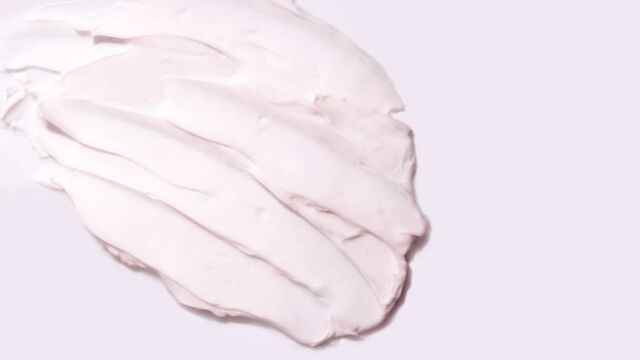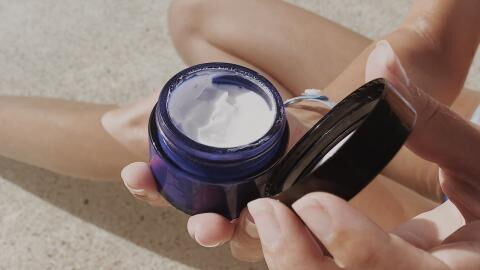Summer is here, and after almost a year of on-off lockdowns, we can finally slather ourselves in SPF and bask on the beach. Our treasured sunscreens offer protection from sunburns, premature ageing and even skin cancer. And, no matter the season, the most avid skincare fanatics wouldn’t leave their homes without a bottle in their bag.
Discover our latest podcast
But, just in time for sunscreen sales to be reaching a new peak, a report was released showing levels of benzene in various SPF productsprompting a petition for a major recall.
The test was conducted by a pharmaceutical company, Valisure, known as ‘the pharmacy that checks.’ Valisure believes that the FDA isn’t rigorous enough with drug regulation, so they conduct their own testing before deciding to stock products.
Valisure’s recent testing endeavour saw the company test 294 batches of sunscreen (mainly sprays and aftersun products) from 69 different brands and found that many of them had been contaminated with benzene.
What is benzene?
Benzene is an organic carcinogenic chemical often found in crude oil, gasoline and even cigarette smoke. The colourless and aromatically sweet compound is also commonly used to manufacture plastics, detergents, drugs and pesticides. However, benzene is also a known carcinogen and has been linked to cancer and nervous system issues.
A 2010 study conducted by UC Berkeley also revealed that there is ‘probably no safe level of exposure to benzene, and all exposures constitute some risk.’
The phrases ‘carcinogen’ and ‘no safe level of exposure’ make the idea of benzene much scarier than it actually is. Benzene is found in all kind of products, and chances are you’ll have more airborne exposure to the chemical on a busy city street than you would when found in your cosmetics.
Should we be worried about benzene in our sunscreen?
What’s important to note is that benzene is considered a trace contaminant, which means it was never intentionally added to any sunscreen product. Instead, benzene most likely wound up in your SPF through a contaminated ingredient or a manufacturing error.
Chemistry PhD and Science Educator Dr Michelle Wong discussed the topic on her Youtube channel, explaining that the level of benzene that could be absorbed through skin exposure hasn’t been well studied, and as a ‘volatile chemical’, much of it would be likely to evaporate before being absorbed.
How much gets through depends a lot on what else the benzene is mixed with. In general, it’s a fraction of a per cent of the amount you put on, and not all of the stuff that absorbs through skin actually makes it to your blood.
The maximum level of benzene found in the Valisure study was also logged at 6ppm (parts per million) and while 'no level of exposure' is considered safe, the EU does allow for benzene in products as an impurity at 0.1% which is the equivalent of roughly 1000ppm. So it can be concluded that the benzene contamination in the SPF products was at least within the limits of what the EU would consider acceptable.
View this post on Instagram
Valisure’s testing also found that benzene contamination wasn’t exclusive to just sunscreen, specific brands or even certain products. Several brands had both products that tested positive for benzene as well as products that didn’t. These same products’ benzene contamination also varied depending on lot and batch numbers. It must also be noted that any cosmetic product could be contaminated with benzene, but SPF was just the only product type Valsiure reviewed.
But, while benzene seems everpresent, it’s still harmful, and there is no benefit from exposing yourself to this chemical. If you want to be sure that your SPF didn’t contain any benzene, then you can cross-check your products on tables two and three of Valisure’s report. If your sunscreen does contain benzene, make sure you dispose of it appropriately.
Don’t let benzene scare you away from SPF
Any product you consume on any given day and even stepping outside can result in benzene exposure, so don’t let this chemical scare you away from using proper sun protection.
Every year around 16,200 people in the UK are diagnosed with melanoma, a number that has doubled over the last decade and is commonly caused by sun exposure. Using sunscreens and SPF products is hugely important when it comes to preventing these skin cancers. Not to mention SPF also protects your skin from free-radical damage, keeping it looking younger and healthier for longer.
The American Academy of Dermatology (AAD) specifies that adults should use about a shot glass worth of SPF for their entire body, equating to around half a teaspoon for the face. If you’re not sure how to measure out your sunscreen, most people follow the two-finger rule, meaning your sunscreen should be enough to cover the length of both your index and middle fingers.
The AAD also recommends reapplying SPF every two hours and after swimming.















